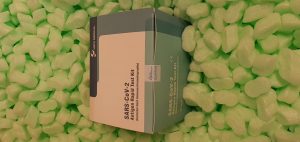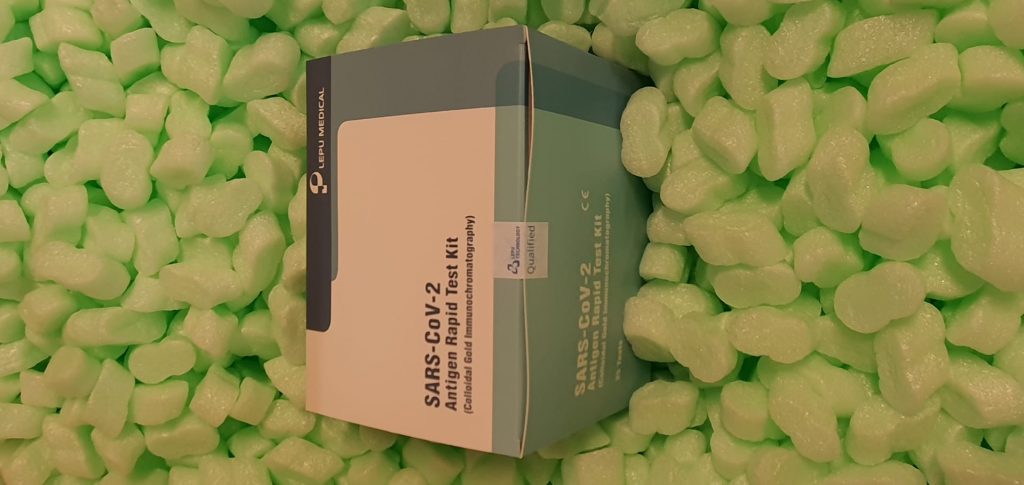Cigarette pack warnings are broadly used internationally for decreasing smoking behaviour. Current warnings usually consist of a textual or graphic warning that smoking can result in adverse (well being) outcomes. Though these warnings have confirmed advantages, in addition they have vital limitations. Most notably, they don’t produce helpful adjustments in vital cognitive determinants of smoking cessation corresponding to self-efficacy to chorus from smoking and they don’t cut back smoking for particular subsets of the goal inhabitants.
Recent research present proof for the effectiveness of well being warnings that embrace health-related testimonies from former smokers. We designed cigarette pack warnings that consist of extra basic testimonial statements from former smokers, chosen in a pilot research for his or her potential influence on two vital cognitive determinants of smoking (i.e., self-efficacy beliefs and final result expectations). The Multidimensional Dyspnoea Profile is a respiratory questionnaire which makes an attempt to measure the incommunicable totally different sensory qualities (and emotional responses) of breathlessness.
In the principal research, on-line members had been both uncovered to the new testimonial warnings, to graphic well being warnings, or to text-only well being warnings on 4 separate events throughout a 24-h window. In a pattern of 416 each day smokers, we noticed helpful adjustments in self-reported cigarette smoking, craving, stop intentions, evaluations of smoking, self-efficacy, and final result expectations, instantly after viewing the warnings a primary time and after a number of exposures.
These results had been comparable for members in the three warning sort teams, with some (small) variations for adjustments in final result expectations and craving. Firearms accidents current a serious pediatric public well being problem in the United States. This research protocol describes analysis to develop and then conduct a randomized medical trial to judge ShootSafe, an interactive, participating, academic web site to show youngsters firearms security. Drawing on sensorial anthropology we take as our object of research the course of of turning sensations into signs.
ShootSafe has three main targets: (a) train youngsters fundamental data and expertise wanted to hunt, shoot, and use firearms safely; (b) assist youngsters be taught and hone vital cognitive expertise of impulse management and hypothetical considering wanted to make use of firearms safely; and (c) alter youngsters’s perceptions about their very own vulnerability and susceptibility to firearms-related accidents, the severity of these accidents, and their perceived norms about peer conduct surrounding firearms use. ShootSafe will accomplish these targets by a mix of interactive video games plus quick, impactful testimonial movies and quick expert-led academic movies.
‘The physique says it’: the problem of measuring and speaking sensations of breathlessness
Breathlessness is a sensation affecting these residing with persistent respiratory illness, weight problems, coronary heart illness and anxiousness issues. We contemplate how shared cultural templates of ‘what counts as a symptom’ evolve, mediate and feed into the course of of bodily sensations changing into a symptom. Our contribution to the subject of sensorial anthropology, as an interdisciplinary collaboration between historical past, anthropology and the medical humanities, is to offer a critique of how biomedicine and cultures of medical analysis have measured the multidimensional sensorial points of breathlessness.
Using cognitive interviews of respiratory questionnaires with members from the Breathe Easy teams in the UK, we give examples of how the wording used to explain sensations is commonly at odds with the language these residing with breathlessness perceive or use. They wrestle to grasp and map their bodily expertise of sensations related with breathlessness to the phrases on the respiratory questionnaire. We mirror on the alignment between cognitive interviewing as a way and anthropology as a disciplinary method.
We argue biomedicine brings with it a set of cultural assumptions about what it means to measure (and know) the sensorial breathless physique in the context of the respiratory clinic (medical analysis). We recommend the mismatch between the descriptions (and confusion) of these responding to the respiratory questionnaire objects and these choosing the vocabularies in designing it might be symptomatic of a sort of historic testimonial epistemic injustice, based on the prioritisation of medical experience over experience by expertise.

A Blended Electronic Illness Management and Recovery Program for People With Severe Mental Illness: Qualitative Process Evaluation Alongside a Randomized Controlled Trial
We performed a trial to check the digital Illness Management and Recovery (e-IMR) intervention to offer conclusions on the potential efficacy of eHealth for individuals with extreme psychological sickness (SMI). In the e-IMR intervention, we used the customary IMR program content material and methodology and mixed face-to-face classes with internet-based methods on the constructed e-IMR web platform. During the trial, the e-IMR platform was sparsely used. This research aimed to judge the added worth of the e-IMR intervention and the boundaries and facilitators that may clarify the low use of the e-IMR platform.
[Linking template=”default” type=”products” search=”Stk39 Rabbit Polyclonal Antibody” header=”1″ limit=”154″ start=”3″ showCatalogNumber=”true” showSize=”true” showSupplier=”true” showPrice=”true” showDescription=”true” showAdditionalInformation=”true” showImage=”true” showSchemaMarkup=”true” imageWidth=”” imageHeight=””]
This course of analysis was designed alongside a multicenter, cluster randomized managed trial. In this research, we included all accessible members and trainers from the intervention arm of the trial. Baseline traits had been used to match customers with nonusers. Qualitative knowledge had been gathered at the finish of the semistructured interviews. Using theoretical thematic analyses, the knowledge had been analyzed deductively utilizing a pre-existing coding body. Out of 41 eligible members and 14 trainers, 27 members and 11 trainers had been interviewed.
Of the 27 members, 10 had beenrecognized as customers. eHealth parts that had added worthhad been the persuasive nature of the goal-tracking sheets, monitoring, and the peer testimonials, which had the potential to boost group discussions and disclosure by members. The low use of the e-IMR platform was influenced by the inflexibility of the platform, the lack of info know-how (IT) assets, the group context, members’ low laptop expertise and disabilities, and the hesitant eHealth angle of the trainers.

